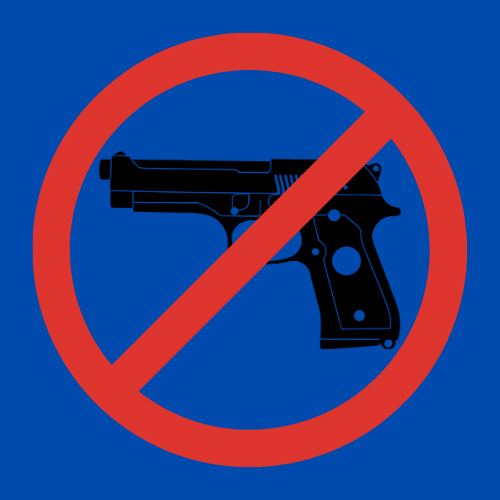Global Pandemic Sees Increase in Gun Violence

Graphic by Julian Knapp
March 22, 2021
Over the course of a uniquely cumbersome year, the epidemic of gun violence has plagued the United States at significantly higher rates than those prior to the COVID-19 pandemic. After stay-at-home orders were implemented throughout the United States in March of 2020, firearm fatalities soared to an unfathomable level. NPR indicated that 2020 had an overall increase in gun deaths of approximately 25 percent in comparison to 2019.
Despite marking the first March in eighteen years without a single school shooting, what followed was the prevalence of shootings and domestic violence. Prior to quarantine, schools had frequently been the targets of shootings, yet this fatal reality was transferred to homes as lockdowns were nationally instated. NBC News reported that during the week after nationwide lockdowns took effect, Philadelphia experienced a rate of shootings that was twice as high as the rate that they had experienced in months prior. March of 2020 also marked a 15-year high in monthly homicides in Jacksonville, Florida.
Amidst this surge in shootings, the FBI reported the greatest number of monthly background checks for the purchase of firearms done in March of 2020 since the implementation of their background check record keeping in 1998.
This trend continued over the course of lockdown, with there being a 16 percent increase in firearm fatalities in April of 2020 and a fifteen percent increase in May of 2020. Furthermore, the Gun Violence Archive reported that fifty-six homicides were committed in May of 2020: the highest number of homicides out of all of the months for which they had tabulated data on mass shootings. This surge in shootings co-occurred with an approximate eight percent increase in domestic violence since nationwide lockdowns began.
The simultaneous rise in shootings and domestic violence alongside the increase in background checks for the purchase of guns delineates a direct relationship between gun purchases and gun violence. During a period of time in which people are expected to stay at home except for essential matters, there is no logical or viable explanation for an increase in firearm purchases. Thus, this correlation between firearm purchases and shootings or domestic violence incidents during a global pandemic is highly alarming.
Critics of restrictions on gun ownership cite the Second Amendment — which permits the ownership of guns — in order to counter the implementation of gun control laws. The amendment directly states “A well regulated Militia, being necessary to the security of a free State, the right of the people to keep and bear Arms, shall not be infringed.” These precise words refer to national security, the protection of which the majority of citizens are not in control of. Therefore, private gun ownership is unrelated to the maintenance of national security, being that gun owners utilize their guns for individual purposes.
In order to maintain the safety of individuals, it is crucial to reduce the accessibility of firearms given their lethal nature. The prominent relationship between the purchase of guns and the rise of homicides and shootings underscores the need to pass more stringent regulations on the purchase of guns. Their wide availability to citizens within the United States is exceedingly dangerous and is of major importance to be taken into account in the establishment of legislative gun control.



